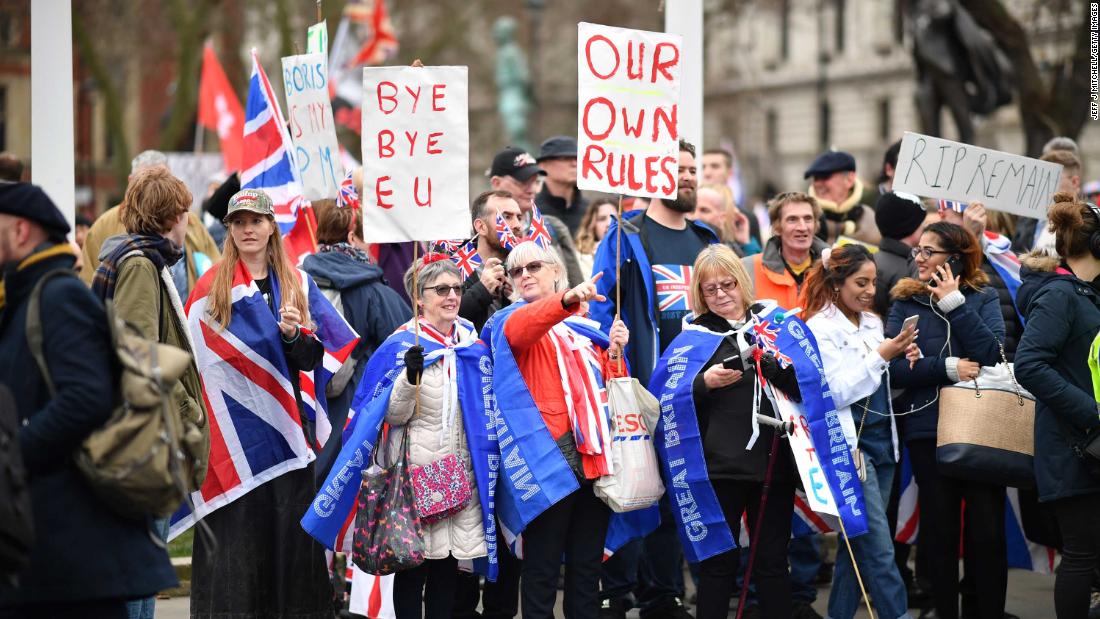
Boris Johnson, the British Prime Minister, and Ursula Von Der Leyen, the president of the EU Commission, had a crucial phone call on Saturday evening, after talks between the negotiating teams hit a brick wall last week.
The two sides have been trying to agree a trade deal before the standstill "transition period" ends on December 31. However, talks have been deadlocked for months over three key issues and the negotiating teams have as good as run out of wiggle room within their mandates, which are given to them by their respective political leadership -- hence the call between Johnson and Von Der Leyen over the weekend.
Why is this week so important?
While both sides refuse to commit to a deadline for talks to conclude one way or another, several crucial issues will collide this week, creating a logical end point. On Monday, the two negotiating teams meet in Brussels for an intensive day of negotiations. Johnson and Von Der Leyen are scheduled to have a call at some point in the evening to discuss any progress that has been made.
While those talks are taking place, Johnson's government will reintroduce controversial legislation to Parliament that would see the UK potentially overwrite parts of Brexit deal that Johnson agreed with Brussels last year. The Internal Market Bill would allow the UK to tweak domestic law in a way which would breach the Northern Ireland Protocol, a crucial part of the initial agreement between London and Brussels. The British government has admitted that doing so would breaking international law, breaching the treaty signed last year. The EU has launched legal proceedings against the UK. The protocol was agreed in order to prevent a hard border between the Republic of Ireland and Northern Ireland in the event of no deal.
If Monday goes well, then talks will continue on Tuesday and Wednesday, perhaps with more calls between Johnson and Von Der Leyen nudging their negotiators towards reaching a deal. The hope is this can be achieved by close of play Wednesday at the latest, as the final summit of EU leaders for 2020 takes place on Thursday. This is believed to be the last scheduled chance for the leader of the 27 EU member states to approve any agreement between the two negotiating teams.
While a deal is within touching distance and, with the assistance of the EU and UK political leadership, two days could be ample to bridge the current gaps, the EU will need to keep an eye on what is happening in the UK parliament, as the Internal Market Bill faces a crucial vote on Wednesday evening.
The UK maintains that the law-breaking measures would only be used in the event of no-deal and should not hamper attempts to reach a deal.
What is left to be decided?
Accounts differ as to how close a deal is, however consensus is that if the three remaining sticking points can be bridged then the rest of the deal is more or less good to go. However, the EU has long maintained that nothing is agree until everything is agreed.
The three areas of disagreement are on fishing, the UK's ability to diverge on EU standards and legal oversight of any deal.
On fishing, the UK is demanding that Brussels fully respects that, having left the EU, has total control of its fishing waters. This is a serious concern for European fisheries and has become a serious red line for French President Emmanuel Macron, who appears willing to veto the whole deal if a compromise is not reached that allows French vessels to fish in British waters.
On standards, the UK has for months objected to Brussels' demands for a level playing field which would tie Britain to close alignment with the EU on regulations and standards. The major area of contention is on how the UK would be able to use state aid in order to give British business a competitive edge over European companies. The EU maintains that level playing fields are entirely normal in most trade deals.
On legal oversight, the UK is extremely wary of any agreement which could result in the European Court of Justice being seen to have any involvement in British domestic law. A disdain for European courts had been a cornerstone of Britain's Euroskeptic movement pre-Brexit.
Despite the drama, it is likely that we won't hear much until the talks are over. Both sides are being extremely cautious with what they will say in public. However, if the gaps are bridged, things will suddenly move very quickly and it's entirely possible a deal could reach the EU summit for Thursday.
It's equally possible that if the differences are insurmountable, Thursday is the day both sides down tools and prepare for no deal. And at that point, Boris Johnson would have to make difficult decisions that could do irreparable damage to the UK's international reputation.
"to" - Google News
December 07, 2020 at 06:07PM
https://ift.tt/2VJKZWo
Here's what you need to know about Brexit this week - CNN
"to" - Google News
https://ift.tt/368wPko
https://ift.tt/2YvVgrG

No comments:
Post a Comment